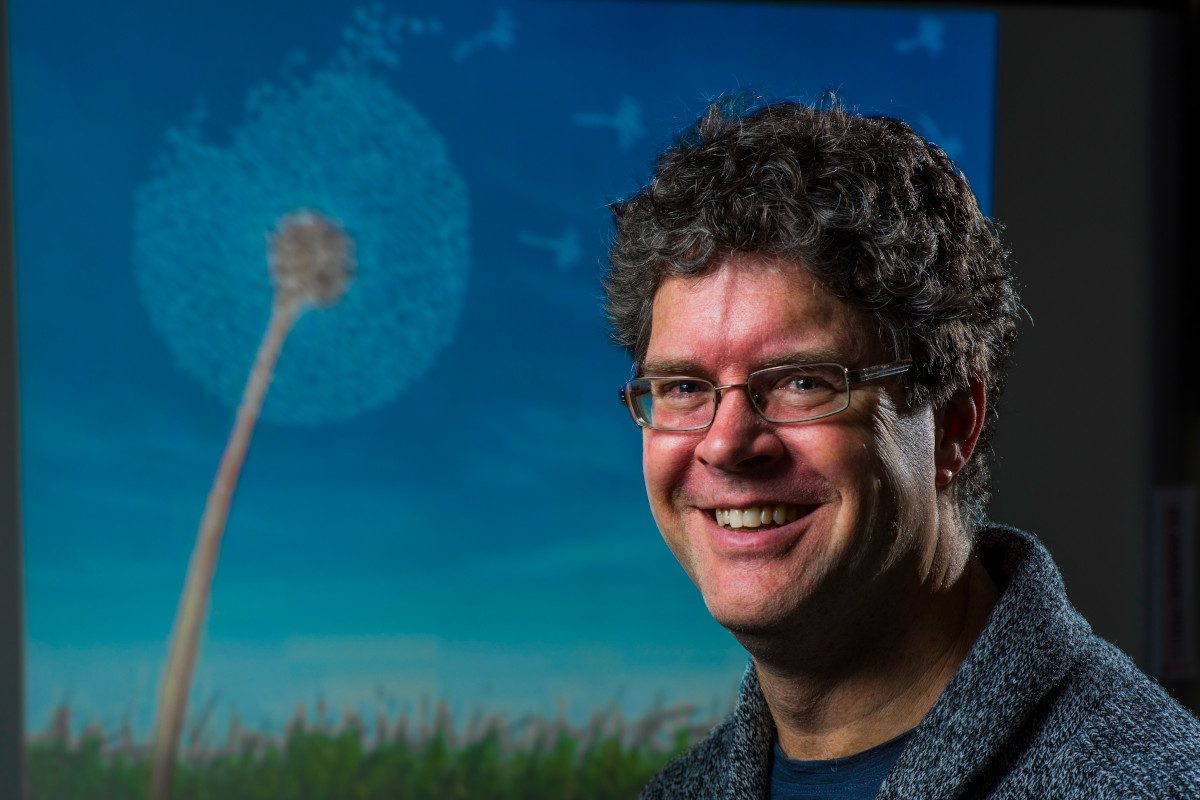
Professor Mark Lewis, in the Department of Mathematical and Statistical Sciences and Department of Biological Sciences, and recipient of the J. Gordin Kaplan Award for Excellence in Research for 2020. Photo credit: John Ulan
An expert in mathematical biology has been awarded the J. Gordin Kaplan Award for Excellence in Research, the University of Alberta’s most prestigious research award.
Mark Lewis, professor in the Department of Mathematical and Statistical Sciences and the Department of Biological Sciences, is this year’s honouree in recognition of his many years of interdisciplinary research and collaboration. Lewis joins the ranks of a prestigious group of J. Gordin Kaplan laureates across the UAlberta campuses.
“It is a great honour,” Lewis said. “The University of Alberta is fortunate to have so many outstanding researchers, so it is really quite humbling to be included in the list of candidates who have received the award.”
Hear more from Lewis below, or explore the field of mathematical biology at UAlberta on our website.
What does this recognition of your outstanding contributions to scholarship mean for you?
Much of my work is highly interdisciplinary, bringing mathematics together with biology, specifically ecology. I feel very fortunate to have had an amazing research group over the years, many of whom have various different scientific skills. We also collaborate widely with other researchers around the world, looking for new mathematical ways to solve problems in ecology . So in a way, I feel like the recognition reflects that this kind of collaborative research approach can work really well and produce top science.
Why is this kind of recognition important?
Alberta has developed a very strong group in mathematical biology, a rapidly emerging field,, including some excellent younger faculty, such as Assistant Professor Jay Newby, and it is great to see the subject recognized.
Tell me about future directions for your research and teaching portfolios.
Many of my new research projects involve using mathematics and computing to understand environmental questions, such as the spread of the mountain pine beetle, wildlife disease management, and dynamics of threatened species such as polar bears. One goal is to provide a foundation for solid long-term policy making. However, along the way there are some very interesting mathematical problems that need to be solved. These problems keep on coming, so I feel like there is much more work to do.
I just finished building a light board in my garage. I will be using it this summer to create additional videos for the course I am teaching in Fall 2020, Calculus for the Life Sciences (MATH 134). The course is currently a flipped and blended course, but now we are moving it online because of COVID-19. Using the lightboard will involve writing on an illuminated transparent pane of glass while facing the camera. I am excited to see if I can get this technology to work in new ways.
Anything else you'd like to add?
I am really grateful for the strong support that the University of Alberta has given me over the years at many different levels, including departmental and faculty. This has really helped me meet my potential to do my job as well as I can.